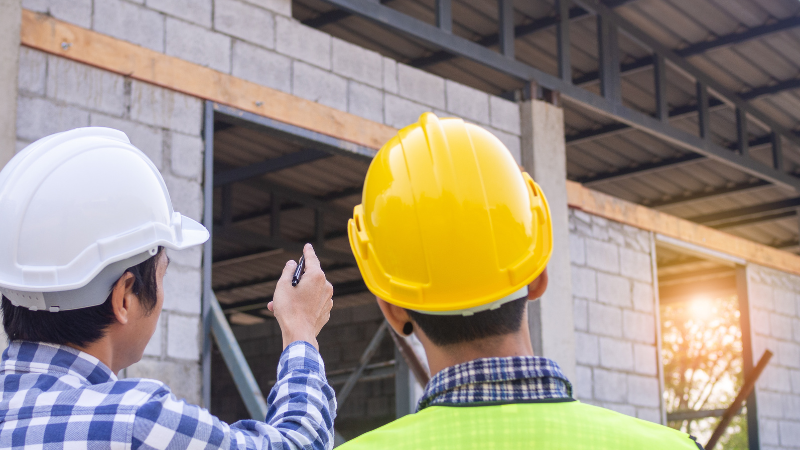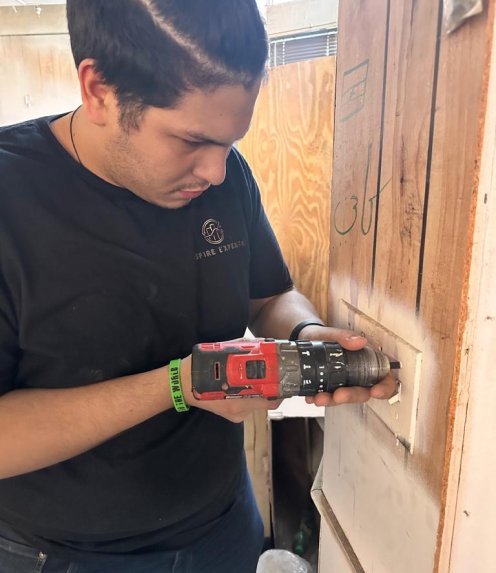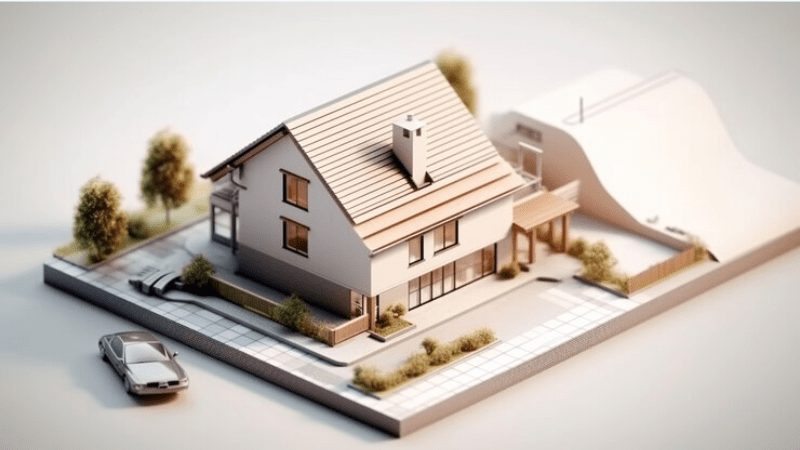If you’re a property manager, owner, or housing authority official, you know how crucial it is to pass your HUD NSPIRE inspections without delays or penalties. Failing a NSPIRE inspection can be costly and time-consuming, impacting not only your property’s reputation but also funding and tenant safety. In this blog post, we’ll explore the most common NSPIRE inspection failures and provide actionable steps to help you avoid them. We’ll also discuss how NSPIRE Experts can support you in staying compliant, so you pass your inspections with ease.

Common Failures in NSPIRE Inspections
Safety Hazards: A Major Risk to Your Property’s Compliance
Safety violations are one of the leading causes of NSPIRE inspection failures. These violations range from exposed wiring to missing or non-functional smoke detectors. When inspectors assess safety, they’re looking to ensure that your property provides a safe environment for all residents.
Common Safety Failures Include:
- Broken handrails on stairs or balconies
- Exposed electrical wiring
- Non-functional smoke or carbon monoxide detectors
- Obstructed fire exits
How to Avoid Safety Failures: Ensuring that your property meets HUD NSPIRE safety standards is crucial for passing inspections. Consider scheduling a NSPIRE Pre-Inspection Service to identify and address safety hazards before the official inspection. Regular maintenance and thorough checks will ensure your property meets safety standards and avoids unnecessary delays.
Plumbing Issues: A Hidden Culprit Behind Many Failures
Plumbing problems are often underestimated until they cause significant issues during an inspection. From leaky faucets to faulty water heaters, plumbing failures can prevent you from passing your NSPIRE inspection.
Common Plumbing Failures Include:
- Leaks in pipes or fixtures
- Inadequate water pressure
- Faulty or broken water heaters
How to Avoid Plumbing Failures: Regularly maintain your plumbing system and address any issues promptly. This includes ensuring that hot water is available throughout the property and that all pipes are leak-free. By conducting routine plumbing checks, you can avoid last-minute fixes that could delay or fail your NSPIRE inspection.
Inadequate Heating/Cooling Systems
An inadequate HVAC system is another frequent reason for failing NSPIRE inspections. Ensuring that your heating and cooling systems are functional and meet HUD standards is critical, especially as temperature extremes can be hazardous to tenant health.
Common HVAC Failures Include:
- Broken heating units in winter months
- Cooling systems that don’t function properly during hot weather
- Inadequate insulation
How to Avoid HVAC Failures: Regular HVAC system maintenance is essential. Make sure filters are replaced, and the systems are serviced at least twice a year. If repairs are needed, schedule them promptly to avoid delays. An NSPIRE Pre-Inspection can help identify HVAC issues early, saving you time and money before the official inspection.
Fire Safety Violations: A Non-Negotiable Inspection Standard
HUD NSPIRE standards require that properties meet fire safety requirements to ensure the safety of tenants. Failure to meet these requirements can lead to inspection failures and penalties.
Common Fire Safety Violations Include:
- Missing fire extinguishers in required areas
- Blocked or obstructed fire exits
- Non-compliant fire alarms or detectors
How to Avoid Fire Safety Violations: Install fire extinguishers in each unit and make sure they are up-to-date. Ensure that all fire exits are clearly marked and easily accessible. Regularly test fire alarms and detectors, and keep a record of these checks. Fire safety compliance should be part of your ongoing maintenance routine.
Structural Damage
Structural integrity is a critical component of NSPIRE inspections. Cracks in the foundation, damaged walls, or roofing issues can lead to failed inspections. Structural issues can also pose a safety hazard, so it’s vital to address them promptly.
Common Structural Failures Include:
- Cracked foundation walls
- Loose or damaged roofing
- Uneven floors
How to Avoid Structural Failures: Schedule regular inspections by a professional contractor to identify and address any structural issues. If you suspect issues with the foundation or roofing, don’t wait for an inspector to find them. Preemptively address these problems to ensure that your property passes inspection with ease.

How to Avoid These NSPIRE Inspection Failures
Regular Pre-Inspections: The First Step to Success
The best way to avoid NSPIRE inspection failures is to conduct regular pre-inspections. This proactive approach allows you to identify and address issues before the official inspection.
With NSPIRE Pre-Inspection Services, our experts evaluate your property and provide a comprehensive report outlining areas that need attention. This gives you ample time to fix deficiencies before the official inspection, ensuring compliance.
Timely Repairs: Fix Issues Before They Become Costly
Once you identify deficiencies, make sure to fix them as soon as possible. Timely repairs are essential for maintaining compliance with NSPIRE standards and ensuring that your property remains inspection-ready.
NSPIRE Experts offer fast and efficient repairs that help your property meet HUD NSPIRE requirements. Our team handles everything from minor fixes to more extensive renovations, ensuring your property is up to standard and ready for inspection.
Training Maintenance Staff: Your Key to Preventing Failures
Investing in proper training for your maintenance staff can significantly reduce the risk of NSPIRE inspection failures. Properly trained staff can identify potential issues early and address them before they become major problems.
Providing your team with continuous education on NSPIRE standards will ensure that they are always prepared to handle any issues that may arise.

The Benefits of Working with NSPIRE Experts
Nationwide Coverage and Fast Turnaround
NSPIRE Experts offers nationwide coverage with a quick turnaround, ensuring that your NSPIRE inspection failures are addressed promptly. Our team can inspect your property within 48 hours and provide a comprehensive report that helps you prepare for the official inspection.
Expert Shadowing During Inspections
One of the most valuable services we offer is inspection shadowing. We accompany NSPIRE inspectors during the official inspection to ensure that everything runs smoothly and that no issues are overlooked. With our NSPIRE Inspector Shadowing, you’ll have an expert advocate on your side, ensuring that your property meets all the necessary standards.
Long-Term Compliance Partnership
Working with NSPIRE Experts means you’ll have a long-term partner for HUD compliance. We don’t just help you pass the inspection; we ensure that your property stays compliant year-round. Our apartment turnover services and ongoing maintenance support help keep your property in excellent condition.

Trust in NSPIRE Experts
Passing NSPIRE inspections is a crucial part of property management, but it doesn’t have to be a stressful experience. Conducting regular pre-inspections, making timely repairs, and investing in staff training—you can significantly reduce the risk of inspection failures.
At NSPIRE Experts, we offer the expertise and support you need to ensure your property is always inspection-ready. Contact us today to schedule your free pre-inspection and take the first step toward passing your NSPIRE inspection with flying colors!
